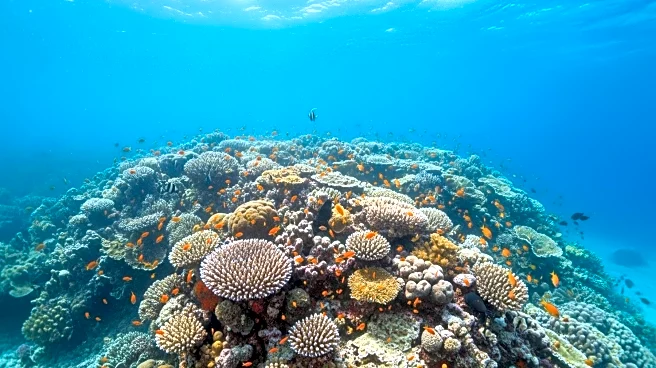What's Happening?
Research conducted at the Hanuama Bay Nature Preserve in Hawai'i has demonstrated significant changes in reef health due to human absence during the COVID-19 pandemic. The preserve, a popular tourist destination, was closed during the pandemic, allowing researchers to study the effects of reduced human activity on the ecosystem. The study, led by Elizabeth Madin from the University of Hawai'i, found that the physical and biological health of the reef quickly returned to normal levels, including fish population densities and overall reef health. This research highlights the sensitivity of coral reef ecosystems to human presence and the potential for recovery when human disturbances are minimized.
Why It's Important?
The findings underscore the profound impact of human activities on marine ecosystems, particularly coral reefs, which are vital for biodiversity and coastal protection. The study provides evidence that reducing human interference can lead to rapid ecological recovery, offering insights into sustainable tourism and conservation strategies. It emphasizes the need for policies that balance human access with environmental preservation, potentially influencing future management practices for marine reserves. The research also serves as a reminder of the interconnectedness of human actions and environmental health, advocating for increased awareness and responsibility in natural resource management.









